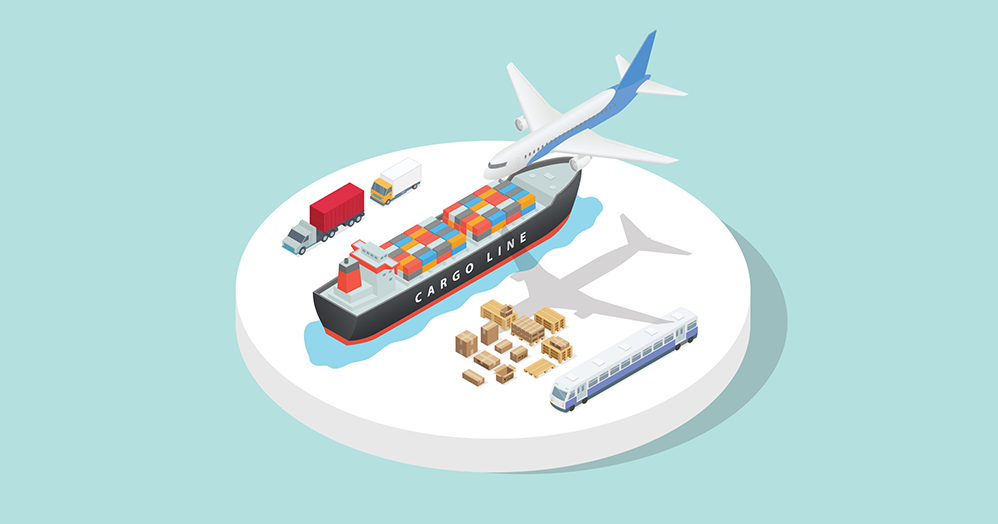Shifting to Third Party Logistics Providers

Whenever you see a successful business, someone once made a courageous decision.Peter F Drucker, management consultant, educator, and author
Working with a logistics partner makes sense when your business is growing at an exponential rate. That said, how do e-commerce companies work with these fulfillment companies? What makes them an essential part of a business integration?
What do these integrated providers do?
Such third-party providers not only process orders and ship products but also manage warehouses that act as the conduit points between the supplier and the customer. They are called third party logistics providers, because of their unique and compelling mode of operations. A few of these fulfillment centers have more than one warehouse, to facilitate faster and cheaper regional movement of products. They typically work with e-commerce companies like Amazon, Flipkart, Magento, Shopify, etc.
How do these 3PL providers charge?
This depends on the extent of services they provide. A fully integrated provider offers order processing, picking, warehousing, kitting (bundling products into SKUs) packing & packaging, loading, and delivering services. The charges are either by the hour or by a unit of a product, for an end-to-end cycle. In a few cases, storage and handling charges may be customized and made separate.
Now that we’ve seen how these 3PL providers work and charge, let’s see what the benefits of working with a fulfillment center are.
The most obvious reason for a growing e-commerce company is that tasks and operations can be outsourced to centers to reduce day-to-day issues of stock movement.
In addition to this obvious reason, there are quite a few hidden benefits.
No investment in warehouses
This is a big overhead and the costs of running a warehouse can be daunting, even to companies with enough funding. And more importantly, what if there are products that move sluggishly? An example is a supplier of woolen garments. During summers, there’s virtually no demand for these, in warm countries or regions. Similarly, orders for umbrellas, raincoats, and footwear will be placed only during monsoons. And are unwanted inventory during unseasonal months. Whereas, a fulfillment center can provide anything around the year, at a fair price.
No investment in staff
If an e-commerce company is running its own end-to-end operations, resources of various skills have to be hired, trained, and deployed. It’ll need pick-up teams and vehicles, warehouse staff, packaging experts, and delivery teams. In addition, a sophisticated ERP solution is also required, to seamlessly integrate all these activities.
Handing over these tasks to a 3PL provider saves time, energy, and headaches!
No diversions and distractions
An e-store with a unique idea can focus on high-impact product development, marketing, and customer satisfaction. Even in these multi-tasking times, specialist operations have their own value. It always makes sense to do what we know best! That is why cosmetics, shoes, toothpaste, and garment manufacturers focus on their core skills and not deviate from their business goals.
When companies choose a third-party fulfillment center, they can just impose their faith on experts to do the logistical end of things. Be they warehouse specialists, packaging experts, or delivery teams with a good idea of the local geography.
No delays and wrong deliveries
Usually, when companies have to deal with several operational teams, there is bound to be confusion and chaos. The wrong product is delivered. Or a product is delivered late. Or even worse, goods are delivered in a damaged condition. Instead of taking care of all the logistics, an e-commerce company can be more fast and efficient in its operations when it can shift its operations to logistics partners.
When do companies need to integrate with 3PL providers?
Though there is no hard and fast rule, the process can begin when an e-store has kick-started its operations with a few orders. It’s quite likely that these stores will try out all the operations by themselves during the early days, not only to familiarize themselves with the processes but also due to a lack of support partners.
It’s a great idea to initially tie up with small-sized 3PL providers who can customize their operations to suit the store’s needs, as opposed to going to a major fulfillment center. In the case of the latter, not only will the costs be more, the processes and legalities will also be exhaustive as well as exhausting. Especially when sales are unpredictable, though the processes and overheads remain the same. This leads to delays and disappointed customers.
As a store grows in confidence and sales, there is always a time to shift to more organized 3PL providers, who can not only provide integrated services, but also help increase your sales as a result of excellent delivery mechanisms, trustworthy dealings, and data points.
These providers can help e-stores with valuable data to create or reset organizational goals
Reach Us At
Corporate Address
5th Floor, Vijay 66 North, Jubilee Enclave, HITEC City,Hyderabad, Telangana 500081
About Company
© 2024 Shift Logistics Private Limited all rights reserved